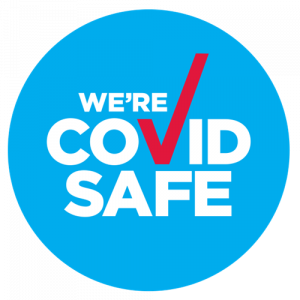In most jobs, communication is used constantly throughout the day. This may include greeting a customer, sending an email, answering the phone, speaking with management, providing and understanding instructions for a task, or writing a report.
Successful communication generates idea sharing, increased productivity and straightforward conflict resolution. Miscommunication in the workplace frequently causes business shortfalls in addition to breakdowns of working relationships.
Before a person even gets a job, they often rely on their communication skills to demonstrate their skill sets. Resumes, phone calls, and interviews are all based on the skill of communication and are integral in the good seeking process.
It is clear to see how some people with communication difficulties can struggle to achieve employment or perform to an optimum level in the workplace.
Can a speech pathologist help me in preparing for job seeking?
If you have a communication difficulty a speech pathologist can assist you in the goal of seeking employment. They will first help you to determine specific areas that you are having difficulty in, and then provide individualised therapy to target these.
They can assist you to improve your communication in all stages of job seeking including:
- Asking establishments for job application processes
- Navigating websites and understanding the business you are applying for
- Understanding job descriptions
- Making and answering phone calls with potential employers
- Creating an effective resume to communicate individualized skill set
- Conducting yourself in a way which matches the job you are applying for
- Understanding interview questions
- Effectively answering interview questions
- Managing and troubleshooting common communication problems which occur in interviews and application processes
- Advocating for your needs and goals in the job role
- Accepting an employment offer and understanding the information that follows
Can I get support if I already have a job but want to communicate better?
As communication does not stop after you have obtained a job, a speech pathologist can assist job holders. This includes verbal, written and social communication. Additionally, speech pathologists can assist people to access and use Augmentative and Alternative Communication (AAC) in the workplace.
Areas which a speech pathologist can help you in include:
- Writing emails, reports etc.
- Literacy skills
- Understanding instructions and following procedures
- Making sentences which effectively convey your message
- Understanding other people’s language
- Improving memory of spoken information
- Understanding a range of workplace vocabulary
- Saying sounds clearly
- Managing and problem-solving issues with voice volume
- Practicing safe voice use to avoid voice injury
- Making appropriate conversation with others
- Answering the phone in a confident and expected social manner
- Determining how to vary interaction styles based on your communication partner
- Problem solving and conflict resolution using communication
- Choosing the right AAC option for your workplace
- Setting up or adding to and AAC system to suit your needs
- Providing strategies of how to include people who use AAC
- Assisting you to advocate for your needs
What should I expect during appointments?
Your first appointment will be dedicated to finding out about factors which influence your communication, including your areas of strengths and weaknesses.
From here your therapist may conduct formal and informal assessment to determine how therapy can be tailored to your specific needs and personal goals.
The frequency of ongoing appointments depends on your lifestyle, presenting issue, and therapist recommendations.
Your speech pathologist will work with you to determine the best approach. Newly learnt skills will be applied in a manner which mimics natural workplace environments to assist generalisation of these skills to all contexts.
This may include mock scenarios such as responding to an interview, phoning the therapist to discuss a business proposal, using technology to create emails and search information, and managing social conversations with the therapist.
For young learners, motivation may be facilitated through the use of games and apps.
After your appointment your therapist will typically provide you with easily achieved home tasks between sessions.
This will continue your learning outside of appointments, in addition to assist you to transfer your new skills to all environments.

